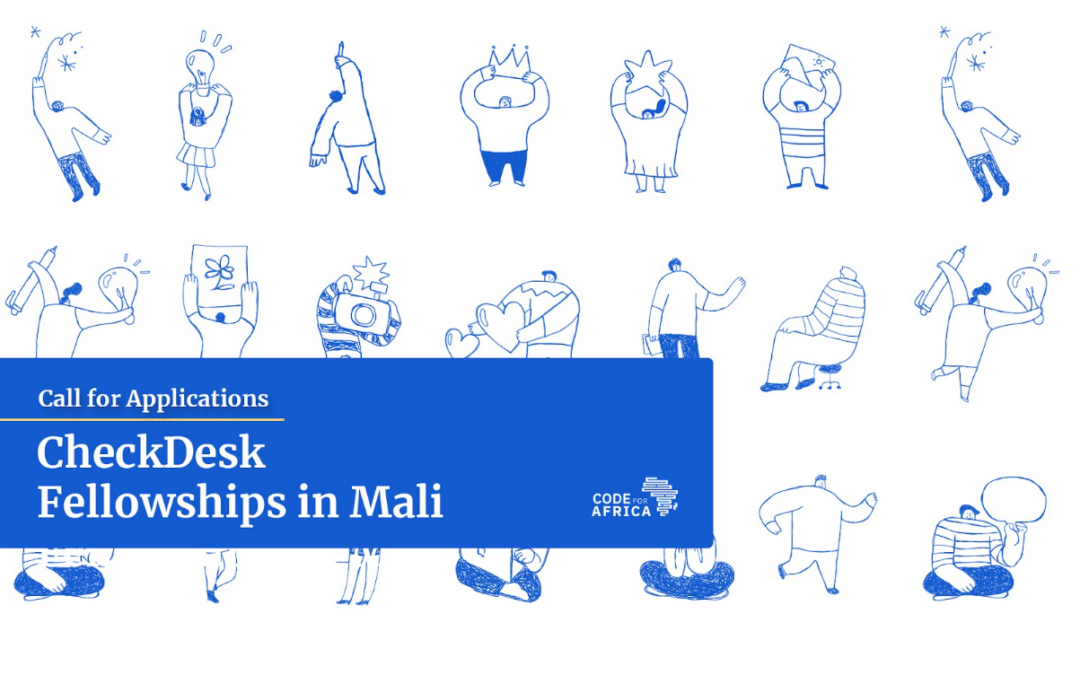Do you want to help debunk conspiracy claims and other toxic misinformation in Mali?
Code for Africa (CfA), through its flagship network, the African Fact-Checking Alliance (AFCA), is offering a six-month incubation programme to help set up or expand CheckDesks inside established media organisations or watchdog CSOs based in Mali.
A CheckDesk is a dedicated fact-checking/verification unit within a news organisation or CSO that uses IFCN-compliant techniques to research and debunk misleading or otherwise harmful information.
The incubation programme is being implemented under an information integrity project, which seeks to address information integrity in the Malian information ecosystem by enhancing publicly available content that provides timely, relevant, and accurate information to Malian citizens, and use data-driven approaches that promote media literacy, mitigate harm from inaccurate information, and optimise the reach of quality information.
The incubation programme
The programme aims to build a diversified ecosystem of local fact-checking champions to help increase resilience to mis/disinformation within the Malian information ecosystem.
Successful organisations will receive technical support from Code for Africa (CfA), its in-house fact-checking newsroom at PesaCheck, and its disinformation investigation team at the iLAB.
The AFCA incubation programme will also include a seed grant, access to digital resources/tools, advice on cost-efficient editorial production workflows, peer mentoring, and strategic advice on market and audience strategies.
The organisations will use their skills and platforms of choice to share and amplify the resulting debunking. The fact-checks can take the form of text, visual or audio media, primarily in local languages, with a particular focus on targeting young people.
Participants will be expected to commit to adopting the code of principles established by the International Fact-Checking Network (IFCN) and to assigning full-time staff and resources to operate their new CheckDesks.
The programme will consist of:
- Financial support: The chosen organisations will receive a grant to cover eligible activities and costs.
- Publishing support: The newsrooms will publish the fact-checking products generated under the project on their respective media platforms and will additionally receive support to publish internationally.
- Organisation building: The selected organisations will receive online consultations with CfA to assist them in better understanding their audience, refining their fact-checking offering and developing potential revenue models.
- Growing reach: CfA will offer amplification/growth support, including scaling/syndication support.
Still interested? Check if you are eligible:
- The organisation must not work for any paramilitary or security organisation.
- The organisation must be based in Mali.
- The organisation must have an existing online presence, including an actively maintained website and/or social media profiles, or a commitment to establish an online presence at the beginning of the programme.
- The organisation must have internet access and internet-capable devices for participating journalists/trainees/researchers to access project resources and undertake their fact-checking assignments.
- The organisation must have managerial and editorial staff committed to participating in the programme during the agreed-upon period.
- The organisation must commit to timely and open communication from the management and seconded team members.
- The seconded trainees must commit to agreed-upon weekly online training and task-based class assignments.
- The organisation must commit to broadcasting or publishing content produced through the programme in the specified cadence and driving engagement on an appropriate public platform.
- The seconded trainees must be fluent in the language of tuition and mentorship: English or French.
If your organisation is eligible, please apply by no later than 26 April 2024 by completing this form.
About the Partners:
Code for Africa (CfA) is the continent’s largest network of digital democracy laboratories, with over 100 full-time data scientists, forensic researchers, technologists and digital storytellers working in support of investigative media and watchdog CSO partners in 26 African countries. CfA builds digital solutions that provide actionable information to citizens to encourage informed decisions while
amplifying voices to strengthen civic engagement for improved public governance and evidence-driven accountability. CfA will give fellows access to support from its openAFRICA data ‘liberation’ team, the commons.AFRICA open source team, the source.AFRICA evidence research team, and a string of wider communities that CfA manages, including the africanDRONE community of civic drone/mapping pioneers, the sensor.AFRICA community that uses remote sensors to monitor air/water/radiation and other environmental information, the PesaCheck fact-checking team that debunks misinformation, the iLAB forensic investigation team that tracks and exposes hate speech or other toxic content, the CivicSignal media monitoring and content analysis team, and the WanaData network of women data scientists/storytellers who liberate and amplify feminist data.
The United States Agency for International Development (USAID) vision includes leading efforts to invigorate democracy, enhance human rights and justice, and bolster governance that advances the public interest and delivers inclusive development. We shape policy and development agendas, generate knowledge and evidence that drives innovation, catalyse partnerships and coalitions, and mobilise cutting-edge programmes and technical assistance to enable USAID’s Missions and partners to accelerate democratic development globally.
